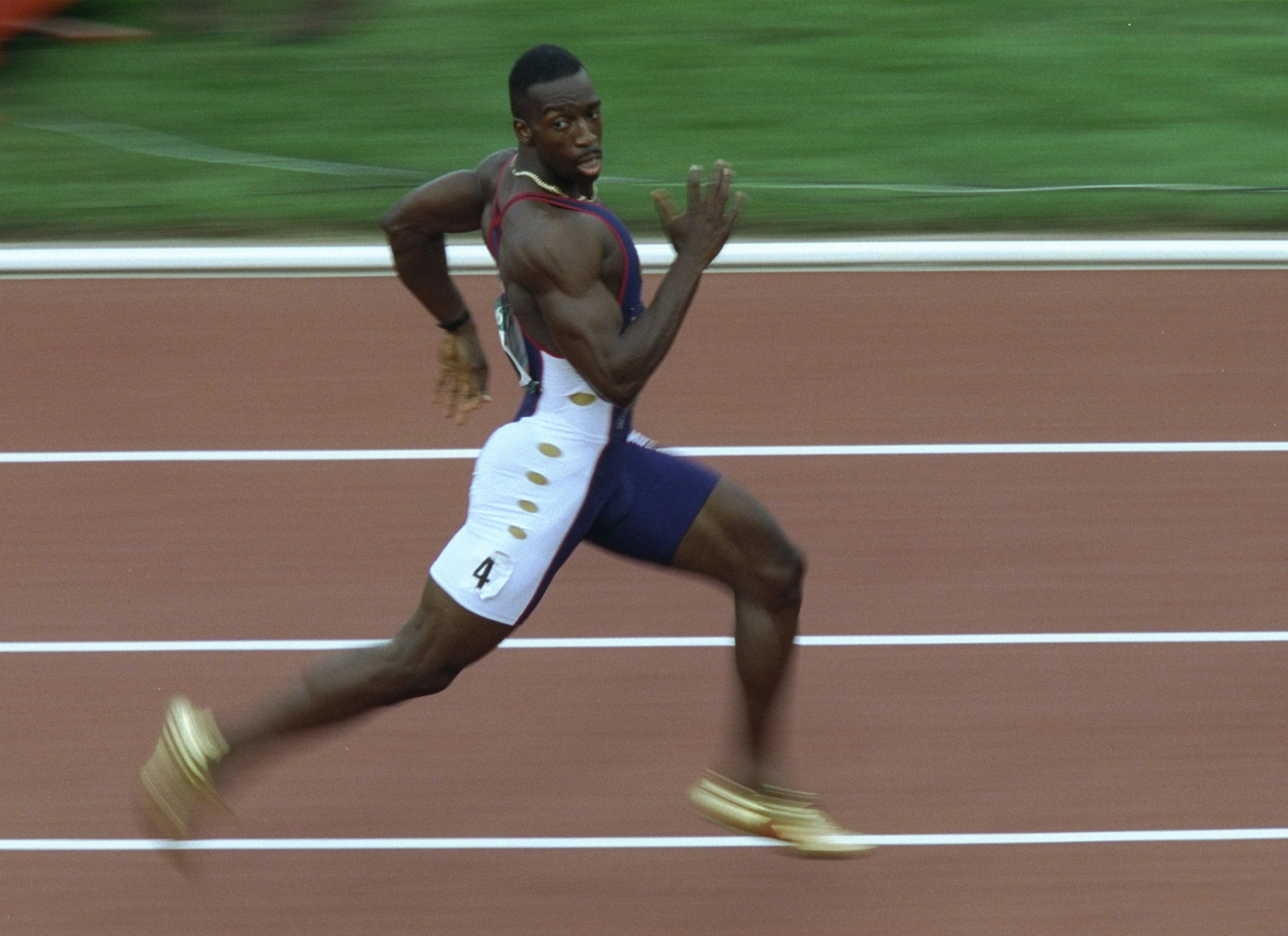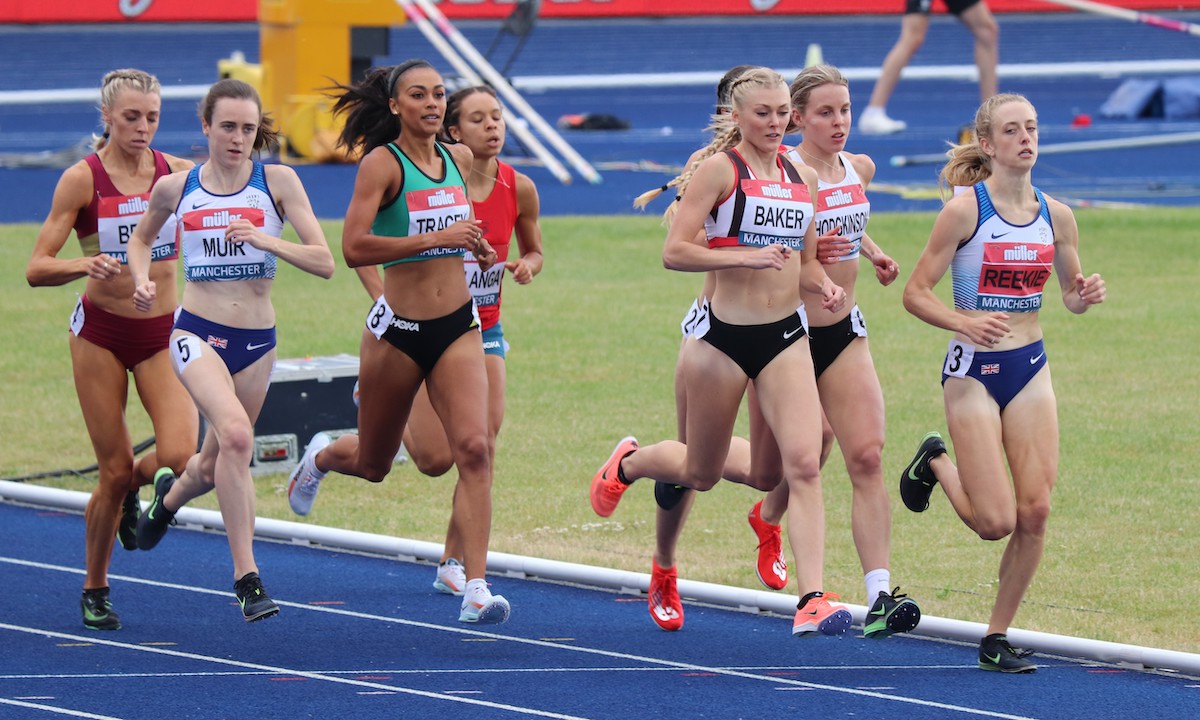

Featured
What To Eat As A Track And Field Runner
Published: September 8, 2023
Discover the best foods that should be featured in your diet as a track and field runner to enhance your performance and meet your nutritional needs.
Introduction
Welcome to the world of track and field running! As a track and field runner, you understand the importance of speed, agility, and endurance. But did you know that nutrition also plays a crucial role in your performance and recovery? It’s true! Proper nutrition can fuel your workouts, enhance your stamina, and accelerate your progress towards your goals.
Whether you’re a sprinter, a long-distance runner, a jumper, or a thrower, your body requires specific nutrients to perform at its best. By following a well-rounded and balanced diet, you can optimize your energy levels, support muscle growth and repair, and minimize the risk of injuries.
In this article, we will delve into the world of nutrition for track and field runners. We will explore the essential nutrients that your body needs, and we will provide you with practical meal plan suggestions and hydration tips to keep you at the top of your game. So, let’s lace up our shoes and dig in!
Track and field running is a demanding sport that places significant stress on your body. Whether you’re training for a track meet, an obstacle race, or just striving to improve your personal best, fueling your body with the right nutrients is essential to maximize your performance and recovery.
As a track and field runner, you should focus on consuming a balanced diet that includes a variety of nutrients. This will not only optimize your energy levels but also support your overall health and well-being. In the following sections, we will break down the specific nutritional requirements for track and field runners and provide you with practical meal options to meet those needs.
Importance of Proper Nutrition for Track and Field Runners
Proper nutrition plays a vital role in the performance and success of track and field runners. The food you eat not only fuels your workouts but also provides the necessary nutrients for muscle repair and recovery. Here’s why proper nutrition is essential for track and field runners:
- Optimal Energy Levels: Track and field running requires high amounts of energy. Carbohydrates, our body’s primary energy source, are crucial in providing the fuel needed for intense workouts and competitions. Consuming complex carbohydrates such as whole grains, fruits, and vegetables can sustain your energy levels and improve your performance.
- Muscle Growth and Repair: Track and field runners rely on their muscles to propel them forward, jump higher, or throw farther. Consuming enough protein is essential for supporting muscle growth and repair. Including lean sources of protein like chicken, fish, beans, and tofu in your diet can help rebuild and strengthen your muscles.
- Enhanced Endurance: Endurance is key in track and field running, whether you’re sprinting or running long distances. Adequate intake of nutrients like iron, B vitamins, and antioxidants can improve oxygen delivery to your muscles and delay fatigue. Iron-rich foods, such as lean red meat, leafy greens, and fortified cereals, can help prevent iron-deficiency anemia and maintain endurance.
- Optimized Recovery: Track and field training can put a strain on your muscles and lead to micro-tears. Proper nutrition, especially in the post-workout period, is crucial for muscle recovery. Consuming a combination of carbohydrates and protein within 30 minutes after your workouts can replenish glycogen stores and enhance muscle repair.
In addition to these benefits, a well-balanced diet rich in fruits, vegetables, whole grains, and healthy fats can support your overall health and immune system. It can also help maintain a healthy body weight and reduce the risk of chronic diseases that could hinder your track and field performance.
Now that you understand the importance of proper nutrition for track and field runners, let’s dive into the specific nutritional requirements and meal options that will help you maximize your performance and achieve your goals.
Nutritional Requirements for Track and Field Runners
Track and field runners have unique nutritional needs due to the physical demands placed on their bodies. To perform at their best, track and field runners should focus on meeting the following nutritional requirements:
- Carbohydrates: Carbohydrates are the primary fuel source for track and field runners, providing the energy needed for training and competitions. Aim to consume complex carbohydrates such as whole grains, fruits, and vegetables, which provide sustained energy throughout the day.
- Protein: Protein is essential for muscle repair and growth, supporting the development of lean muscle mass. Consume adequate amounts of lean protein sources like chicken, fish, eggs, beans, and dairy products. Aim for about 1.2 to 1.7 grams of protein per kilogram of body weight per day.
- Fats: Healthy fats are important for overall health and provide a concentrated source of energy. Include sources of unsaturated fats like nuts, seeds, avocados, and olive oil in your diet. Limit saturated fats and trans fats, which can negatively impact performance and health.
- Vitamins and Minerals: Track and field runners require a variety of vitamins and minerals to support their performance and recovery. Ensure intake of iron-rich foods, such as lean red meat, spinach, and lentils, to prevent iron-deficiency anemia and maintain optimal oxygen transport. Other important nutrients include calcium, vitamin D, and antioxidants found in fruits and vegetables.
- Hydration: Adequate hydration is crucial for performance and recovery. Drink water throughout the day and before, during, and after your training sessions or competitions. Monitor your fluid intake and adjust based on sweat loss and environmental conditions.
It’s important to note that individual nutritional requirements may vary based on factors such as body composition, training intensity, and personal goals. Consulting with a registered dietitian who specializes in sports nutrition can provide personalized guidance and ensure you’re meeting your specific needs.
Now that we’ve covered the essential nutritional requirements for track and field runners, let’s move on to explore pre-workout and post-workout meal options to optimize your performance and recovery.
Pre-Workout Meal Options
The pre-workout meal is an important fueling opportunity for track and field runners. It provides the energy and nutrients necessary to sustain performance during training or competitions. Consider the following pre-workout meal options:
- Oatmeal with Fruit: Start your day with a bowl of oatmeal topped with fresh fruits like berries or bananas. Oatmeal is a great source of complex carbohydrates, providing a steady release of energy. The fruits add natural sweetness and provide additional vitamins and minerals.
- Whole Wheat Toast with Nut Butter: Spread a tablespoon of nut butter (such as almond or peanut butter) on a slice of whole wheat toast. This combination of carbohydrates and healthy fats provides sustained energy and satiety. Add a sprinkle of chia or flaxseeds for extra omega-3 fatty acids.
- Greek Yogurt with Granola: Enjoy a serving of Greek yogurt topped with homemade or store-bought granola. Greek yogurt is high in protein and calcium, while the granola provides carbohydrates and additional fiber. Opt for plain Greek yogurt and add berries or a drizzle of honey for natural sweetness.
- Chicken or Tofu Stir-Fry with Brown Rice: For a more substantial pre-workout meal, sauté chicken or tofu with a variety of vegetables and serve it over a bed of brown rice. This combination provides a balanced mix of protein, carbohydrates, and essential nutrients.
- Smoothie with Protein Powder: Blend a homemade smoothie using a combination of fruits, vegetables, milk or yogurt, and a scoop of protein powder. This option is convenient, easy to digest, and can be customized to suit your taste preferences and nutritional needs.
Remember to fuel up about 1-2 hours before your training session or competition to allow enough time for digestion. Experiment with different pre-workout meals to find what works best for you in terms of energy levels, digestion, and performance.
It’s also important to stay hydrated before your workouts. Pair your pre-workout meal with a glass of water or a sports drink to ensure optimal hydration.
Now that you have some pre-workout meal options, let’s move on to explore post-workout meal options that will help facilitate recovery and muscle repair.
Post-Workout Meal Options
The post-workout meal is crucial for replenishing energy stores, facilitating muscle repair, and optimizing recovery for track and field runners. After an intense workout or competition, consider the following post-workout meal options:
- Grilled Chicken or Fish with Sweet Potato and Vegetables: Enjoy a protein-rich meal by grilling chicken or fish and pairing it with roasted sweet potatoes and steamed vegetables. This combination provides amino acids for muscle repair, complex carbohydrates for glycogen replenishment, and micronutrients for overall recovery.
- Quinoa Salad with Mixed Greens and Grilled Shrimp: Cook up a quinoa salad with mixed greens, grilled shrimp, and an assortment of colorful vegetables. Quinoa is a complete protein that offers all essential amino acids, while the greens and shrimp provide additional vitamins, minerals, and antioxidants.
- Veggie Omelette with Whole Grain Toast: Whip up a veggie-packed omelette using egg whites or whole eggs and fill it with spinach, bell peppers, onions, and other vegetables of your choice. Serve it with a slice of whole grain toast for added carbohydrates and fiber.
- Salmon or Tofu with Brown Rice and Roasted Brussels Sprouts: Prepare a delicious meal by baking salmon or tofu and serving it with a side of brown rice and roasted Brussels sprouts. Salmon is an excellent source of omega-3 fatty acids, which can help reduce inflammation and support recovery.
- Protein Smoothie with Banana and Spinach: Blend a post-workout smoothie using a protein powder of your choice, a ripe banana, a handful of spinach, and a liquid base like almond milk or coconut water. This option is quick, convenient, and provides fast-acting protein and carbohydrates.
It’s important to consume your post-workout meal within 30 minutes to 1 hour after your training session or competition. This window of time is when your body is most receptive to nutrient uptake and can maximize the benefits of your post-workout meal.
In addition to these meal options, remember to rehydrate after your workouts. Water, electrolyte-rich sports drinks, or coconut water can help replenish lost fluids and restore hydration levels.
Now that you have some post-workout meal ideas, let’s move on to explore some sample daily meal plan suggestions for track and field runners.
Daily Meal Plan Suggestions
Having a well-planned daily meal plan can help track and field runners meet their nutritional needs and optimize their performance. Here are some sample meal plan suggestions to guide you:
Breakfast:
- Option 1: Oatmeal topped with sliced bananas, a sprinkle of nuts, and a drizzle of honey. Serve with a glass of low-fat milk or a cup of Greek yogurt.
- Option 2: Veggie omelette made with egg whites or whole eggs, filled with spinach, tomatoes, and mushrooms. Enjoy it with a slice of whole grain toast.
Lunch:
- Option 1: Grilled chicken or tofu salad with mixed greens, cherry tomatoes, cucumbers, and a light vinaigrette dressing. Include a side of quinoa or whole wheat pita bread.
- Option 2: Whole wheat wrap filled with lean turkey slices, avocado, lettuce, and tomato. Enjoy it with a side of raw vegetable sticks and hummus.
Snack:
- Option 1: Greek yogurt with a handful of berries and a sprinkle of granola or chia seeds.
- Option 2: A small handful of nuts and a piece of fruit, such as an apple or a banana.
Dinner:
- Option 1: Grilled salmon with a side of roasted sweet potatoes and steamed broccoli. Serve with a garden salad drizzled with olive oil and vinegar.
- Option 2: Stir-fried lean beef or tofu with mixed vegetables, served over a bed of brown rice or quinoa.
Post-Workout Snack:
- Option 1: Protein smoothie made with your choice of protein powder, a ripe banana, a handful of spinach, and almond milk.
- Option 2: A turkey or chicken wrap with whole wheat tortilla, lettuce, tomato, and avocado.
Remember to stay hydrated throughout the day by drinking water regularly and adjusting your fluid intake based on your activity level and sweat loss.
These are just sample meal plan suggestions. Feel free to customize them based on your dietary preferences, nutrient needs, and training schedule. It’s recommended to consult with a registered dietitian to develop a personalized meal plan that meets your specific requirements.
Now that we’ve covered some meal plan suggestions, let’s move on to discuss the importance of proper hydration for track and field runners.
Hydration Tips for Track and Field Runners
Proper hydration is vital for track and field runners to maintain performance, prevent dehydration, and support overall health. Here are some hydration tips to keep in mind:
- Drink Water Regularly: Make it a habit to drink water throughout the day, not just during workouts. Aim to consume at least 8-10 cups (64-80 ounces) of water daily to maintain hydration levels.
- Monitor Sweat Loss: Track your sweat loss during workouts to estimate how much fluid you need to replenish. Weigh yourself before and after exercise, and aim to drink 16 to 24 ounces of fluid per pound lost.
- Pre-Workout Hydration: Drink 16 to 20 ounces of water 2 to 3 hours before your workout or competition. This allows your body to absorb the fluids properly and ensures you start exercising in a hydrated state.
- During-Workout Hydration: Drink 6 to 8 ounces of water or a sports drink every 15 to 20 minutes during extended workouts or competitions. Adjust the amount based on your sweat rate and environmental conditions.
- Post-Workout Hydration: Rehydrate after exercise by drinking 16 to 24 ounces of water or a sports drink within 1 hour of finishing your workout. This helps replenish fluid and electrolyte losses.
- Electrolyte Balance: Electrolytes, such as sodium, potassium, and magnesium, play a significant role in hydration and muscle function. Consume electrolyte-rich foods and use sports drinks or electrolyte-enhanced water during prolonged and intense workouts.
- Use Hydration Apps: Mobile apps can help you track your fluid intake and send reminders to stay hydrated throughout the day. These apps can be a helpful tool in maintaining proper hydration levels.
- Monitor Urine Color: Pay attention to the color of your urine as it can be an indicator of dehydration. Aim for a pale yellow color, which indicates proper hydration. Dark yellow urine may suggest dehydration and the need to drink more fluids.
- Be Mindful of Weather Conditions: Adjust your hydration strategy based on weather conditions. Hot and humid environments may increase sweat rates and fluid requirements, so be sure to increase your fluid intake accordingly.
Keep in mind that individual fluid needs may vary based on factors such as body composition, training intensity, and climate. It’s important to listen to your body’s thirst cues and stay hydrated before, during, and after exercise.
With these hydration tips in mind, you will be able to maintain optimal fluid balance, support your performance, and enhance your recovery as a track and field runner.
Now, let’s explore the topic of supplements and their role in supporting the track and field runner’s diet.
Supplements for Track and Field Runners
While a well-rounded diet can typically meet the nutritional needs of track and field runners, there may be certain situations where supplements can be beneficial. Here are some common supplements that track and field runners may consider:
- Protein Powder: Protein powder supplements can be convenient for track and field runners, especially for those who struggle to meet their daily protein needs through whole food sources alone. Whey protein, plant-based protein powders, or blends can help support muscle repair and recovery. Choose a high-quality protein powder that is free from artificial additives and sweeteners.
- Multivitamin: A well-balanced diet usually provides all the necessary vitamins and minerals. However, in certain cases, a multivitamin supplement can act as an insurance policy to fill in any potential nutrient gaps. Opt for a reputable brand that provides a wide range of essential vitamins and minerals.
- Creatine: Creatine is a naturally occurring compound that can enhance strength, power, and performance in high-intensity, short-duration activities. It can be particularly beneficial for sprinters and field event athletes. However, consult with a healthcare professional or sports dietitian before starting creatine supplementation to ensure it is safe and appropriate for you.
- Omega-3 Fish Oil: Omega-3 fatty acids, found in fish oil supplements, have anti-inflammatory properties and can support cardiovascular health. While sources like fatty fish, chia seeds, and flaxseeds provide omega-3s, some runners may opt for fish oil supplements for convenience or if they don’t consume enough omega-3-rich foods.
- Vitamin D: Vitamin D plays a crucial role in bone health and immune function. However, deficiency is common, especially in individuals with limited sun exposure or those residing in regions with minimal sunlight. If you suspect you may have low vitamin D levels, consult with a healthcare professional to determine if supplementation is necessary.
It’s important to note that while supplements can have their benefits, they should never replace a balanced diet. Food should always be the primary source of nutrients, and supplementation should be used as a complement, if needed. Consulting with a registered dietitian or sports nutritionist can help determine if and which supplements are appropriate for your individual needs and goals.
Now that we’ve covered the topic of supplements, let’s explore some common mistakes that track and field runners should avoid in their diet.
Common Mistakes to Avoid in Track and Field Runner’s Diet
Proper nutrition is essential for track and field runners to perform at their best. However, there are some common mistakes that runners should avoid to optimize their diet and support their training. Here are some of those mistakes:
- Skipping Meals: Skipping meals, especially breakfast, can leave you lacking the necessary energy and nutrients to support your training. Aim to eat regular, balanced meals and snacks throughout the day to fuel your body and maintain optimal performance.
- Not Consuming Enough Carbohydrates: Carbohydrates are a vital fuel source for track and field runners. Avoiding or severely restricting carbohydrate intake can lead to decreased energy levels and impaired athletic performance. Prioritize complex carbohydrates such as whole grains, fruits, and vegetables to support your energy needs.
- Neglecting Protein Intake: Protein is crucial for muscle repair and growth. Not consuming enough protein can lead to muscle breakdown and hinder recovery. Include lean sources of protein like chicken, fish, eggs, beans, and dairy in your diet to support muscle health.
- Overlooking Hydration: Hydration is often overlooked but is essential for optimal performance. Failing to drink enough water before, during, and after training can lead to dehydration, decreased endurance, and increased risk of cramps. Make hydration a priority, and monitor your fluid intake to ensure you’re properly hydrated.
- Relying too Heavily on Supplements: While supplements can be beneficial, they should never replace a balanced diet. Relying too heavily on supplements and neglecting whole foods can result in nutrient imbalances and potentially negatively impact performance. Focus on consuming a variety of nutrient-dense foods to meet your nutritional needs.
- Ignoring Recovery Nutrition: Proper nutrition after workouts is crucial for muscle recovery and replenishing energy stores. Neglecting to consume a post-workout snack or meal that includes carbohydrates and protein can delay muscle repair and impact future performance. Make sure to fuel properly after training sessions or competitions.
- Not Listening to Your Body: Every individual is unique, and what works for someone else may not work for you. Pay attention to how your body responds to different foods and adjust your diet accordingly. Listen to your hunger and satiety cues and make choices that support your own personal needs and preferences.
- Not Seeking Professional Guidance: Nutrition is complex, and seeking professional guidance from a registered dietitian or sports nutritionist can be extremely valuable. They can provide personalized nutrition plans, address individual needs or restrictions, and help optimize your diet for performance and recovery.
Avoiding these common mistakes and adopting a well-rounded, balanced approach to nutrition can significantly enhance your track and field performance and overall health. Strive for consistency, fuel your body properly, and pay attention to what works best for you as an individual athlete.
Now that we’ve highlighted these common mistakes, it’s time to wrap up this article with a reminder of the importance of proper nutrition and hydration for track and field runners.
Conclusion
Nutrition plays a critical role in the performance and success of track and field runners. By properly fueling your body, you can optimize energy levels, support muscle repair and growth, enhance endurance, and improve overall recovery. To maximize your performance as a track and field runner, keep the following key points in mind:
- Focus on consuming a well-rounded, balanced diet that provides a variety of nutrients.
- Incorporate complex carbohydrates, lean proteins, healthy fats, fruits, vegetables, and adequate hydration into your daily meals.
- Consume pre-workout and post-workout meals that provide the right balance of energy and nutrients.
- Stay hydrated before, during, and after workouts, and adjust your fluid intake based on sweat loss and environmental conditions.
- Consider appropriate supplements, if needed, under the guidance of a healthcare professional or sports dietitian.
- Avoid common mistakes such as skipping meals, neglecting protein intake, relying too heavily on supplements, and not properly hydrating.
- Listen to your body, seek professional guidance, and customize your nutrition plan to meet your individual needs and goals.
As a track and field runner, your body is a remarkable machine that relies on proper nutrition to perform at its best. By nourishing it with the right balance of nutrients, you can enhance your performance, minimize the risk of injuries, and achieve your goals on the track.
Remember, nutrition is not a one-size-fits-all approach. Experimentation, self-awareness, and seeking professional guidance can help you discover what works best for your own unique needs. So, lace up your shoes, fuel your body, and let your passion for track and field running shine through!









